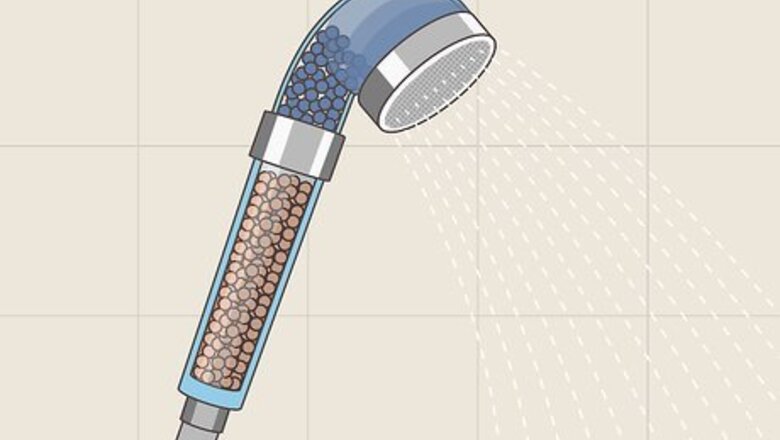
views
Here are 8 natural ways to soften hard water.
Install an ion exchange shower head filter.
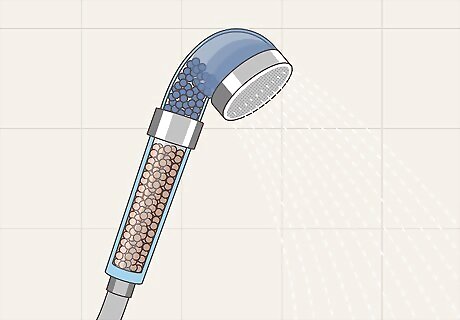
It will remove chlorine and lead from your water. Shower filters are also effective at neutralizing unpleasant smells, and they are specially designed to work with high temperatures and flow rates. You can find shower head filters at hardware stores, home centers, and online marketplaces. To know exactly what minerals your water contains, try testing it with water hardness testing strips. You can pick up testing strips at your local hardware store.
Install an ion exchange softener for your entire water supply.
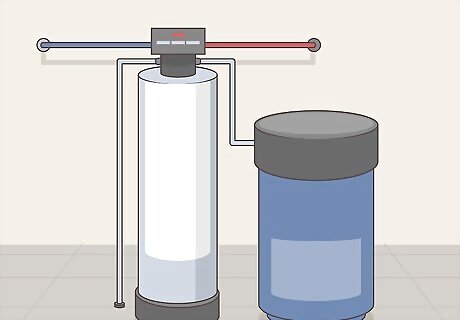
These kinds of softeners are usually installed by a professional. Water coming into your home is run through resin to pull out the contaminants. Purchase these kinds of softeners at hardware stores and home centers, then hire a professional to install it in your home. Home ion exchangers are ideal for hard water rated medium to very hard. They are one of the most common choices for improving household water. You may want to run a hard water test first to note the kinds of minerals in your water. Some softening systems may be better at removing certain contaminants than others. Prices will vary according to model and region, but these kinds of softeners generally run between $500 and $1,500.
Boil away impurities.
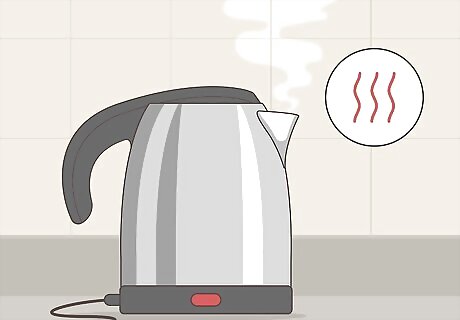
Boiling removes calcium from hard water. Fill a clean pot or kettle with water and place it on a stove burner set to high. Allow the water to boil for a few minutes, then turn off the heat. Let the water cool, then use a spoon to scoop the sediment off the top of the water before transferring it to a clean container. The sediment will most likely be white and chalky. That’s the calcium leaving the water. Boiling doesn’t get rid of all the impurities in hard water, only the calcium. However, calcium is usually what causes the unpleasant smell and taste, so it can greatly improve your water.
Use baking soda in your cooking water.
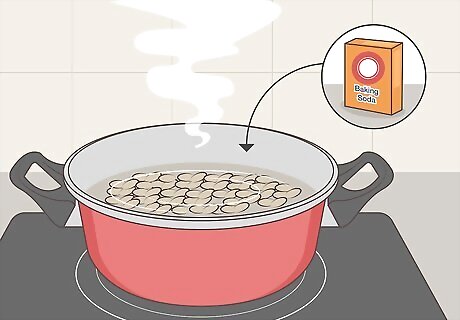
Some foods become tough and rubbery when cooked in hard water. While baking soda can’t soften water completely, it will help alter the pH level to a more natural state. Fill up a pot of water and add 1 tsp (5.6 g) of baking soda when you’re cooking dried beans and peas for a better taste and texture. You can also bathe in baking soda water to make the water feel smoother on your skin. Sprinkle 1/4 cup (32 g) of baking soda into your bath, then soak in it. When you’re done, scrub your body with soap to get rid of any residue.
Add washing soda to your laundry.
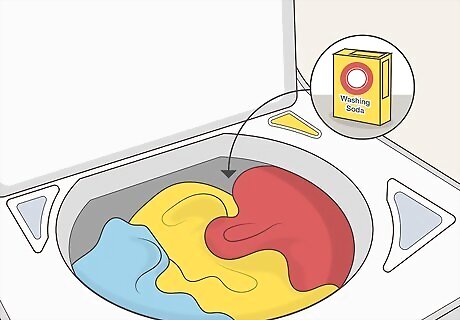
Washing soda, or sodium carbonate, can temporarily soften your water. When you throw a load into your washing machine, sprinkle washing soda over your clothes before you start the washer. Washing soda also helps lift dirt and grime from fabric, so it can lead to cleaner clothes. The carbonate ions from washing soda react with the calcium and magnesium ions that are in hard water. The reaction eventually leads to the calcium and magnesium dissolving, leading to softer water. Only use washing soda in your laundry, not anywhere else. Long-term washing soda use can lead to limescale buildup, which can clog narrow pipes.
Use a reverse osmosis filter in aquariums.
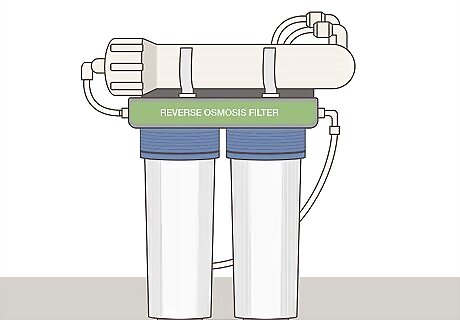
It will purify and distill your water for happier, healthier fish. Install a reverse osmosis filter on the back of your fish tank and make sure it’s plugged in. The filter will separate the impurities from the water and leave only the softened water in your tank. Most aquarium-sized reverse osmosis filters cost around $60. There are reverse osmosis filters that can fit on your home’s water supply; however, they’re usually around $1,500.
Place driftwood in an aquarium.
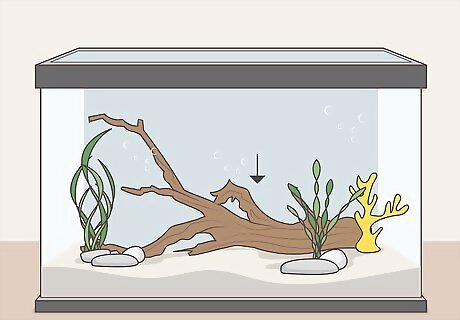
Driftwood releases tannins that naturally soften water. Pick up a log of driftwood from a beach nearby, then boil it in water for about 5 minutes. Let the log cool and then place it in your fish tank to naturally soften the water over time. You can also use this as a decoration for your tank.
Add peat moss to an aquarium.
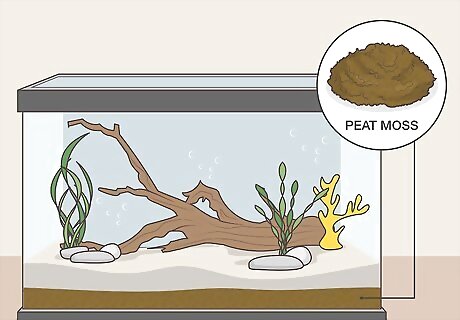
Peat moss naturally filters hard water and purifies it. Purchase a layer of peat moss from an aquarium store and place it at the bottom of your tank. Over time, the humic acid and the tanning agents in the moss will soften the water and filter it. Peat moss may turn your water a slightly yellow-green color; however, it doesn’t mean the water is dirty.



















Comments
0 comment